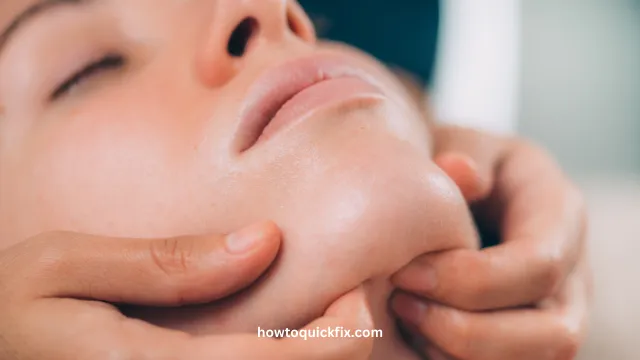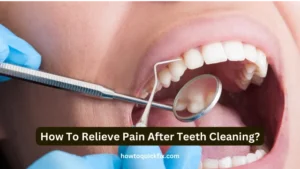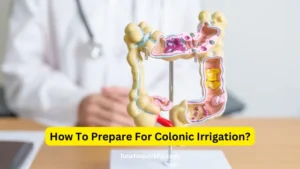Jaw pain after a dental filling can be an unexpected and frustrating experience. While fillings are meant to restore your oral health, the discomfort that follows can leave you wondering if something went wrong. Jaw pain might stem from various factors, such as prolonged mouth opening during the procedure or sensitivity caused by the filling itself.
Ignoring the pain isn’t the solution—it’s crucial to understand why it’s happening and what steps you can take to ease it. Jaw pain may disrupt daily activities like eating, speaking, or even sleeping, making prompt relief essential. Fortunately, there are simple remedies and effective strategies to help alleviate this discomfort.
In this guide, we’ll explore practical methods to relieve jaw pain and discuss the underlying causes. Whether you’re experiencing mild soreness or more persistent pain, these insights will help you manage your symptoms and recover quickly.

Contents
1. Understanding the Causes of Jaw Pain After a Filling
- Jaw pain may arise due to prolonged mouth opening during the procedure.
- Incorrect bite alignment caused by the filling can also contribute to discomfort.
- Dental anxiety or stress during treatment can cause tension in the jaw muscles.
Dental fillings often require keeping your mouth open for an extended period, which can strain the jaw muscles and joints. This strain is especially common in patients with a history of temporomandibular joint (TMJ) issues.
Another reason could be the filling’s alignment. If the filling is slightly too high, it can create an uneven bite, leading to jaw pain or discomfort. This issue can usually be resolved with a quick adjustment by your dentist.
Stress or anxiety during the procedure may also cause you to clench your jaw unconsciously. This tension can linger after the appointment, resulting in soreness and stiffness.
2. Applying Home Remedies for Immediate Relief
- Use cold or warm compresses to reduce inflammation and relax jaw muscles.
- Over-the-counter pain relievers can help manage mild to moderate discomfort.
- Gentle jaw exercises promote healing and improve mobility.
A cold compress applied to the jaw area can help reduce swelling and numb the pain. Alternatively, a warm compress can relax tight muscles and improve blood flow, which aids recovery.
Over-the-counter medications like ibuprofen or acetaminophen are effective for managing pain and reducing inflammation. Be sure to follow the recommended dosage and consult your doctor if you have concerns.
Incorporating simple jaw stretches and exercises, such as opening and closing your mouth slowly, can relieve tension and improve mobility over time. These exercises are especially helpful for addressing stiffness caused by prolonged mouth opening.
3. Adjusting Your Diet to Minimize Jaw Strain
- Opt for soft foods that require minimal chewing to ease jaw strain.
- Avoid sticky or hard foods that can aggravate the pain.
- Stay hydrated to promote healing and maintain oral health.
Switching to a diet of soft, easy-to-eat foods can reduce pressure on your jaw during the recovery period. Options like soups, mashed potatoes, yogurt, and smoothies are ideal choices.
Avoiding hard or sticky foods is crucial, as they can worsen jaw pain by putting additional stress on the affected area. Chewing gum should also be avoided during this time.
Staying hydrated is equally important. Drinking water helps maintain moisture in your mouth and aids in overall recovery. Consider lukewarm water to avoid triggering sensitivity in the treated tooth.
4. Seeking Professional Help When Necessary
- Persistent or severe pain may require a follow-up visit to your dentist.
- Dentists can adjust fillings to ensure proper bite alignment.
- Underlying conditions like TMJ disorders may need specialized treatment.
If your jaw pain doesn’t improve after a few days or worsens, it’s essential to contact your dentist. They can examine the filling and ensure there are no issues, such as uneven surfaces or pressure points causing the discomfort.
In cases where the pain is linked to TMJ disorders or other underlying conditions, your dentist may recommend additional treatment options, such as a mouthguard or physical therapy.
Early intervention is key to preventing long-term complications. Don’t hesitate to seek professional advice if home remedies fail to provide relief.
5. Preventing Jaw Pain in the Future
- Practice good oral hygiene to minimize the need for future fillings.
- Communicate with your dentist about discomfort during procedures.
- Use relaxation techniques to reduce stress and jaw tension.
Maintaining excellent oral hygiene is the best way to prevent cavities and the need for fillings. Brushing, flossing, and regular dental checkups keep your teeth healthy and strong.
If you feel discomfort during a dental procedure, inform your dentist immediately. They can adjust their approach or offer short breaks to ease strain on your jaw muscles.
Incorporating relaxation techniques, such as deep breathing or mindfulness, can help you stay calm during dental appointments. This reduces the likelihood of clenching your jaw and experiencing post-procedure soreness.
Conclusion
Relieving jaw pain after a filling doesn’t have to be overwhelming. By understanding the causes and applying simple remedies like compresses, jaw exercises, and dietary adjustments, you can manage your discomfort effectively. Additionally, staying proactive with follow-up care and adopting preventive measures ensures a smoother dental experience in the future.
Jaw pain may be a common side effect of dental fillings, but with the right approach, it doesn’t have to linger. Whether through home remedies or professional guidance, you can restore comfort and function to your jaw quickly. Always prioritize your oral health and communicate openly with your dentist for the best outcomes.
FAQs
Why does my jaw hurt after a filling?
Jaw pain may result from prolonged mouth opening, uneven bite alignment, or muscle tension during the procedure.
How long does jaw pain last after a filling?
Mild jaw pain typically subsides within a few days, but persistent discomfort may require professional attention.
Can I prevent jaw pain during a dental procedure?
Yes, inform your dentist about discomfort during the procedure, and take short breaks to reduce strain on your jaw.
What should I eat if my jaw hurts after a filling?
Stick to soft foods like yogurt, soup, and mashed potatoes to minimize strain on your jaw muscles.
When should I see a dentist for jaw pain?
Seek professional help if the pain persists for more than a few days or worsens despite home remedies.
Can stress during a dental appointment cause jaw pain?
Yes, clenching your jaw due to stress or anxiety can lead to muscle tension and soreness post-procedure.








